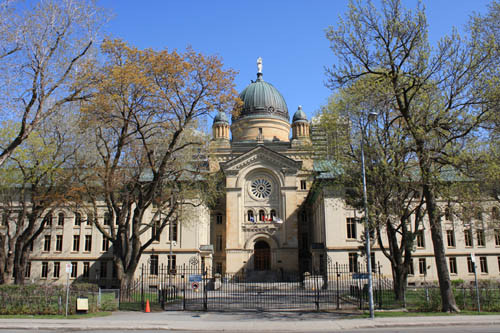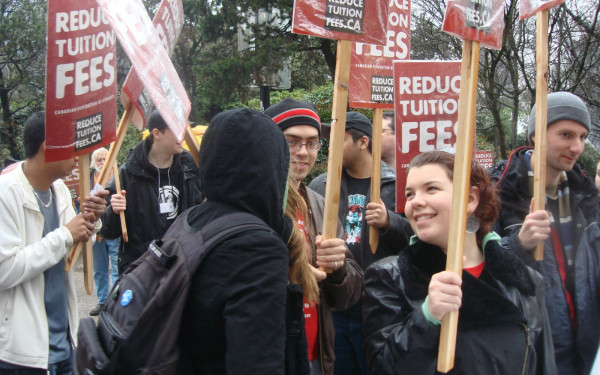Dawson College to Vote on CFS membership
Another referendum will take place in Quebec.
Dawson Student Union Chairperson Ariel Charney told The Link on Aug. 19 that the college’s students would be voting on continued membership in the Canadian Federation of Students. However, the DSU still hasn’t set a date for the vote.
Last spring, three Quebec student unions voted to leave the CFS, a national lobby group based in Ottawa. After Concordia’s undergraduate and graduate students voted to leave along with McGill’s graduate students, the DSU became Quebec’s sole remaining CFS member.
Despite being the sole remaining CFS member in Quebec, CFS membership at Dawson College remains a contentious topic. Dawson students filled a petition to hold a referendum to leave the national lobby group on the same day as Concordia undergraduates.
“We will be holding a referendum,” said Charney. “But we love the CFS. We just want to wait for the Rassemblement d’associations étudiantes’ lawsuit against the CFS to be finished.”
The RAE, formerly the Quebec branch of the CFS, was created in May after losing a copyright lawsuit over the rights to the CFS name to the national branch.
CFS chairperson Dave Molenhuis added another condition to the DSU’s referendum plan.
“[The DSU] owe us money in unpaid membership fees,” he said. “Once that is settled they can hold a referendum.”
Whether it’s a question of unpaid membership fees or unsettled lawsuits, voters at Dawson College shouldn’t hold their breaths. The RAE is currently suing the CFS for $400,000 in unpaid dues. RAE secretary treasurer Daniel Simeone expects the lawsuit to continue for some time.
“I don’t want to speculate too much,” he said. “But I see this going on for at least another year.”
The RAE’s conflict with the CFS dates back to when the RAE was known simply as CFS-Quebec. The Quebec branch had long been a thorn in the side of the national branch, often arguing against what it perceived as an over-corporatization of student services from the national organization.
During the drive in Quebec to leave the CFS, the CFS-Q’s chairperson, Adrian Kaats, quit his post to head the anti-CFS campaign at McGill. Former CFS-Q treasurer Andrew Haig was also responsible for exposing misuses of funds at the national level, often appearing in the media as a foil to the CFS’ Molenhuis.
The sister organizations were in a state of open war after the CFS’ annual general meeting in November. The CFS-Q’s board, putting forward a series of reform proposals, was expelled from the meeting amid a chorus of jeers.
With the two organizations now split apart, the RAE makes no secret of its intentions.
“The RAE no longer exists outside of its legal obligations,” said Ryan Hughes, an RAE board member. “We exist to carry out our litigation against the CFS, recuperate outstanding dues and redistribute them to our student union members.”
The RAE and the CFS are mired in a legal tug-of-war with no end in sight. By the time their court case is settled—and, as a result, Dawson’s referendum is triggered—many if not all of the students who signed Dawson’s petition will likely have graduated.
This article originally appeared in Volume 31, Issue 02, published August 24, 2010.


_600_832_s.png)

_.final_._jpg__600_375_s_c1.png)


__600_375_90_s_c1.jpg)